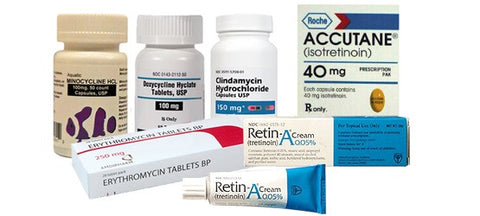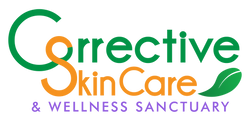FAQ
What is Retin-A?
Retin-A (vitamin A acid also called tretinoin) is a topical treatment available as a .01 percent and a .025 percent alcohol-based gel, a .05 percent liquid, and a .025 percent, .05 percent and .1 percent cream. The gel and liquid varieties are helpful in the treatment of non-inflammatory Grade I and Grade II acne. The creams are a better option as anti-aging agents for the non-acne-prone patient with photo-damaged skin.
The problem with Retin-A is that while it causes desirable desquamation (peeling deep in the follicle) and helps to loosen and dislodge comedones, it does not kill bacteria at all. Even though it is used as a means to lighten darker, hyperpigmented skin, it is too slow-acting and therefore unsatisfactory. In conclusion, topical Vitamin A is only helpful in treating non-inflammatory acne and fabulous for reversing damage on photo-aged skin and hyperpigmentation. It’s important to note that Retin-A makes your skin extremely photo-sensitive (meaning it is more sensitive to sun damage since the top layer of skin is constantly being sloughed off), so it’s vital to wear an SPF of 50 or more daily. If you plan to be in the direct sun for more than an hour, add a sun hat and make sure to reapply sunscreen often.

What is Accutane?
Accutane is a vitamin A derivative and is an extremely potent systemic drug. Used in the treatment of severe cystic acne which is topical treatment-resistant, it works by literally by shutting down the sebaceous activity in the body. Side effects include severe birth defects, diabetes, kidney malfunction, severe dry and peeling skin, conjunctivitis, chapped lips, gum inflammation and bleeding, severe sun sensitivity, sometimes permanent hair loss, aching joints, nausea and vomiting, bone changes, headaches, blurred vision, rectal bleeding, and digestive disturbances. Obviously, regular pregnancy testing, foolproof birth control, and blood tests for liver and kidney function and glucose levels are mandatory. Unfortunately, more and more patients with lesser forms of acne are being prescribed Accutane by dermatologists. Not only is Accutane potentially dangerous, but it simply does not work for all grades of stubborn acne. There have been patients whose cystic acne did clear up after several cycles of Accutane only to have the condition return within months of cessation of the drug. More often, the cystic acne is gone for good, but Grade III pustular acne remains in its wake. While Accutane can be a miracle treatment for some acne sufferers, it doesn’t cure some forms of acne and can have horrible side effects. It also makes skin intensely sensitive to sunlight and individuals on Accutane have to take extreme precautions to protect themselves.
What about Antibiotics?
To patients who are reluctant to abandon their dermatologist’s system of Tetracycline, Minocin and Erythromycin, I say this, “If Tetracycline can get rid of venereal disease within 10 days, why are you still broken out after several years?” or “If Erythromycin can destroy systemic staph or ear infections in 10 days, why are you covered with pimples?”. While some forms of acne can be improved with prescription antibiotics, staying on a regimen of strong antibiotics isn’t the best choice for extended care. If a patient requested a doctor’s medical definition of acne, it would read something like this: Acne is a genetic disease evolving from retention hyperkeratosis of the follicular epithelium. In layman’s terms, you could say that acne affects the follicles of your skin, creating too much oil and sebum which can become infected and create pimples. So, if we are dealing with a follicular disorder, why flood the body with antibiotics so that a tiny amount ends up in the pore, killing only a fraction of the bacteria? There is also the issue of side effects which include sun sensitivity, birth defects, yeast infections, and digestive disorders, to name a few. Topical antibiotics such as Cleocin-T (clindamycin) and topical erythromycin can kill bacteria in the active lesions only, but do not penetrate the pore to kill bacteria or interfere with retention hyperkeratosis. The best way to stop acne from recurring is to treat it from the inside out and not only rely on topical treatments that may or may not have any effect on your skin.
What is Glycolic Acid?
Glycolic Acid is a natural fruit acid which exfoliates dead skin cells and helps new cells to migrate to the surface. It dries up active acne, dislodges blackheads, combats dry skin, helps lighten dark spots, softens the skin, reduces sun damage, and balances irregular skin tones.
